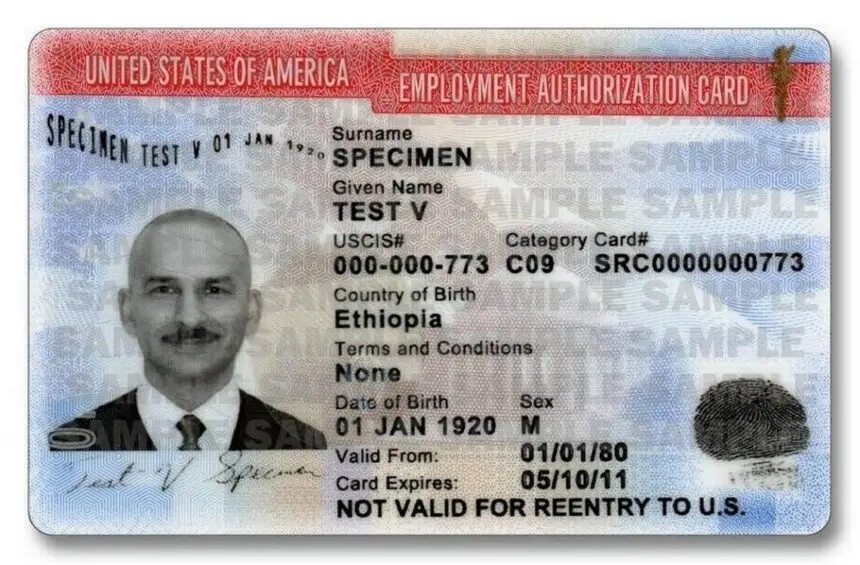To improve access to work permits for eligible immigrants, the U.S. Citizenship and Immigration Services (USCIS) has announced a “temporary final rule (TFR)” extending the automatic extension period for certain employment authorization documents (EADs) from 180 days to 540 days.
This measure is designed to prevent those authorized to work from having their employment authorization expire while waiting for their EAD renewal application to be reviewed.
The Biden-Harris administration sees this as a crucial step in integrating those authorized to work into the workforce and supporting the economies in which they reside, according to a statement on the USCIS website.
USCIS Director Ur M. Jaddou acknowledged the efforts made by USCIS staff over the past year to reduce processing times for most EAD categories. However, the agency has also had to deal with a record number of EAD applications, which has affected the renewal process, USCIS explained, noting that the automatic extension to 540 days will ensure the continuity of EADs while giving the Department of Homeland Security (DHS) additional time to seek long-term solutions.
This temporary final rule aligns with USCIS’s ongoing commitment to improving access to work for those authorized to work, according to the U.S. agency responsible for citizenship and immigration issues.
Various measures are being implemented by the U.S. agency to streamline processing and reduce EAD processing times, including cutting EAD processing times in half for those with pending green card applications, processing a record number of EAD applications over the past year, engaging with communities to inform eligible individuals about the application process, reducing EAD processing times for asylum seekers and certain parolees, extending the validity period for certain categories of EADs, streamlining the process for refugee EADs, and extending online EAD filing to asylum seekers and parolees.
The temporary measure will apply to eligible applicants who have filed a timely and proper EAD renewal application on or after October 27, 2023, and whose applications are still pending on the date of publication in the Federal Register.
It will also apply to eligible EAD renewal applicants who filed their Form I-765 applications on time and in good order during the 540-day period beginning with publication of the rule in the Federal Register.
Without this action, nearly 800,000 EAD renewal applicants, including those eligible for employment authorization as asylum seekers, Temporary Protected Status (TPS) applicants or beneficiaries, and green card applicants, would be at risk of having their employment authorization expire.
In addition, some 60,000 to 80,000 employers would suffer the negative consequences of such a lapse, USCIS said, pointing out that employment authorization cards ( EADs) are generally valid for the duration of the authorized parole period, and that this temporary final rule does not extend the parole period.
In conjunction with the temporary final rule, USCIS is seeking public comment to inform possible future regulatory actions.
For more information on the automatic extension of employment authorization documents, please visit the USCIS Automatic Extension of Employment Authorization Documents page by clicking on the link below.
USCIS’s efforts to streamline and improve access to work permits for eligible “non-U.S. citizens” reflect the Administration’s commitment to supporting those authorized to work and the considerable contribution immigrants make to the U.S. economy.
By extending the automatic extension period for certain EADs, USCIS aims to ensure stability and continuity for individuals and employers while working on long-term solutions to employment authorization challenges, USCIS said on its website.







